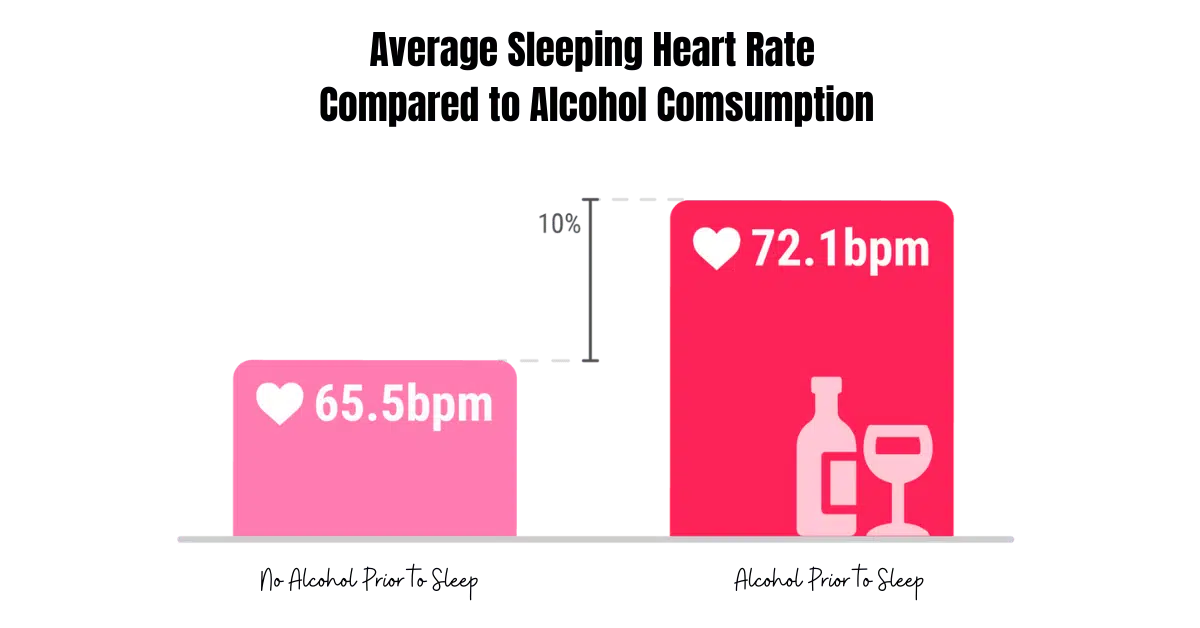Morning rituals get all the love from us self-help/productivity junkies (I've written about building a great one at length here) but our night routines are just as important to our productivity and general effectiveness. Here are 12 of my best tips that will help ensure that your night routine moves the needle forward in your life, health and career.
#1 Have a Bed Time
Imagine telling your 12 year old self that when you become an adult you'd actually make yourself go to bed at a set time.
My 12 year old self would have slapped my current self across the face. My current self would take it in stride though knowing that creating a set schedule allows me to maximize every minute of sleep, maintain high performance and plan my life effectively.
My 12 year old self would surely forgive me when he notices that we live in a nice house, do work we love and are healthier and happier than most of our friends.
Discipline = Freedom
"Ironically, discipline does not restrict freedom in the long term. Freedom comes from discipline"
Ironically, discipline does not restrict freedom in the long term. Freedom comes from discipline. By having the discipline to get to bed on time you'll get more done in less time. You'll be healthier, happier and earn more. You'll eventually have more time to pursue the things you really love as a result.
Treat your bed time the same way you treat your morning alarm. I'll touch more on why this is so important in tip #4.
#2 Don't Drink Alcohol or Eat Within 3 Hours of Bedtime
Alcohol and sleep don't mix well. The "night cap" is one of the more destructive and counterproductive things you can do if you're trying to get. better sleep.

While alcohol may make you feel drowsy and can even aid in falling asleep, it damages sleep quality. Particularly, it makes it more difficult to get into REM sleep.
REM sleep is the deepest form of sleep. It's the state where you're able to dream and your recovery is on overdrive. The benefits of REM sleep are tremendous. REM sleep allows us to...
- Analyze and organize information from the day
- Solidify memories for lasting recall
- Improve and integrate on new skills
- Solve problems
Alcohol digests into sugar which causes us to lose REM sleep in the early stages of the night and wake up sporadically throughout the latter part. This means that the amount of sleep we are getting isn't always reflective of the quality of sleep we're getting and how much we benefit from it.
7 hours of quality, REM heavy sleep (25%+ of your total sleep time) can be much more effective than 9+ hours of poor, low REM sleep that results from alcohol consumption near bedtime.
Quality of Sleep > Quantity of Sleep
"7 hours of quality, REM heavy sleep can be much more effective than 9+ hours of poor, low REM sleep prior to alcohol consumption."
Laying in bed 15 minutes longer to fall into a healthy, deep sleep is well worth the trade off of a night cap. At least on the week days 🙂
Tip: Ditch the night cap and swap for a warm shower and turn the AC down in your bedroom. This will activate your parasympathetic nervous system and help you fall into a deeper state of relaxation and restfulness.
The same goes for food. Digestion will reduce sleep quality and can lead to other side effects like strange dreams or restlessness. Not all foods are created equal and some may impact your sleep more or less than others, but avoiding all within 3 hours of bed time is a good rule of thumb.
#3 Stop Drinking Caffeine at Least 10 Hours before Bed

This is something that actually will start in the daytime rather than near bed time but I had to add it.
Caffeine has a half-life of about 5 hours which means that someone who consumes 100 milligrams (mg) of it will have 50mg in their system in 5 hours.
While the effects of caffeine vary based on the individual, it is commonly accepted that 10 hours is enough time for an average amount of caffeine to pass through your system enough to not impact sleep quality.
A caffeine free body will lead to better rest which leads to a better tomorrow!
#4 Set an Alarm for the Same Time Every Morning
Luckily this task doesn't need repeated. Simply set an alarm on for every morning at the same time (at least for the weekdays) and let it ride.
If you're a super high achiever, waking up the same time 7 days a week has tremendous benefits.
A 2017 paper out of Harvard University introduced a new metric called "Sleep Regularity." It reported a strong positive correlation between this sleep consistency and academic performance (measured by GPA) in healthy college students.
Students in the study with more regular sleep schedules and wake times had an average GPA of 3.72. Those students who were deemed to be irregular sleepers averaged only 3.24 on the 4-point scale.
Your body doesn't differentiate between days of the week but it does adjust to consistency. If you're regularly going to bed and waking up at the same time every day, your body will adapt and sleep quality will improve over time.
If you want to sleep in on Saturday and Sunday though, I won't judge, I do it too. I enjoy the flexibility of staying awake a bit longer and accept the slight tradeoff in performance the next day.
#5 Review the Day
We are so focused on planning for the future that we often forget to look at the present. A to-do list is great (it's coming up next in this list) but mindfully reviewing the successes and failures of the day has tremendous benefits.
- It draws attention to what we did well
- It shows where we could improve
- It gives insights into what needs prioritized the next day
- It keeps our thumb on the pulse of our most important tasks and values
I've created (and shared) my own evening reflections. These are prompts that let me review each day thoroughly and better prepare for the next day.
Example Evening Reflection
Close your eyes and allow yourself to enter a state of relaxation. Listen to the following 14 questions and allow yourself to honestly reflect on each.
#1 How did you provide value today?
#2 What did you learn today?
#3 Did you leave your comfort zone today?
#4 What was your biggest accomplishment today?
#5 Where did you fail today?
#6 Did you grow your network today?
#7 Did you make time for the things that matter most? Your family, friends and yourself.
#8 Did you show interest in others?
#9 Did you earn or lose money today?
#10 Did you act ethically?
#11 Did you take care of your body by eating well and getting exercise?
#12 What is your main goal for tomorrow? How will you make sure it happens?
#13 What are you most thankful for today?
#14 Focus on what success looks like for you. Allow yourself to visualize exactly what success looks like for you. Who will you spend time with? What will you be doing each day?
#6 Create Your Plan for Tomorrow
I made the mistake of creating a to-do list first thing in the morning for a very long time. It is far more effective to have a small list of the top priority tasks and have it prepared so you can have it in front of you upon waking.
Instead of spending time and effort deciding what to do, you'll hit the ground running and know exactly what needs accomplished first.
One of my favorite things to do is based on a concept called "eat that frog," by productivity guru Brian Tracy. The "frog" is the task that you don't want to do most but will have a tremendous benefit once you get it out of the way. Planning which frog you'll eat first the night before will make sure you don't waste any time getting to it.
#7 Lay Out Your Clothes and Anything Else You Need for the Day

The fewer number of obstacles we put in the way of getting to business the better. More decisions leads to decision fatigue which makes it more difficult to make good choices as the day progresses.
Laying out your clothes and anything else you need for the day will also make it easier to avoid the siren's call of the snooze button.
#8 Clean and Prepare Your Work Area
A freshly cleaned desk is much more inviting than one that's cluttered and full of reminders from the day before.
Spend the last minutes of your work day cleaning and preparing your work area for the next day and you'll thank yourself every morning.
#9 Read Instead of Watching TV
I get it, winding down with a little Netflix is euphoric and you deserve to get your Game of Thrones on from time to time, but the benefits of ending the night offline are huge.
One of my favorite purchases of all time has been my Kindle Oasis. It's screen is easy on the eyes and I can turn the pages with just one hand (perfect for laying on your side and getting comfortable).
#10 Avoid the Smartphone and Blue Light 1 Hour Before Sleep
Laying in bed staring at your smartphone isn't a victimless crime. Your sleep quality is the victim and the penalty is grogginess the next day.
The blue light emitted from smartphones and tablets hinders Melatonin production (the hormone that promotes sleep) and throws the body's biological clock—the circadian rhythm—out of whack.
I recommend swapping the smartphone out for a Kindle or other e-reader that doesn't emit blue wavelengths.
#11 Never Check Email or Messages before Bed
It's extremely tempting to want to extinguish any fires or tie up loose ends while you're winding down for sleep but resist the urge at all costs. Most people (the people worth working with anyway) will respect your time and understand that it's unreasonable to expect that you would read and reply to their messages within a couple of hours.
Anyone who can't wait at least 24 hours for a response from you should be avoided or cut (with the exception of your spouse or partner). This includes customers and bosses.
If you can avoid work related emails from the time you stop working until AFTER your morning routine, you'll see tremendous benefits.
Checking your messages before bed also runs the risk of putting you in a bad mood that could wreck your ability to fall asleep or make you want to hit the snooze button in the morning.
Do yourself a favor and don't let that stuff happen outside of the time you allot for it each day. Time that should come AFTER your morning routine and BEFORE you log out of work for the day.
#12 Put Your Alarm Away from Your Bed
If you wake up to an alarm, remind yourself that you set it for a certain time for a reason. The snooze button is not your friend.
The best thing you can do is make it as difficult to hit it as possible.
By putting your alarm clock (or smartphone) in a place that requires you to stand up and turn it off, you're dramatically decreasing the chances that you'll go back into bed.

